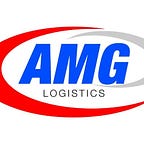3 Omni-channel retail returns strategies
3 Omni-channel retail returns strategies
Much more than efficient order fulfilment is involved in omni-channel retail. A simple returns policy is as important — indeed, it may be the determining factor in a transaction. That said, enacting a favourable returns policy is one thing; executing it effectively is quite another.
Shoppers anticipate the opportunity to return their purchase across many channels, whether that means returning it to a physical store or mailing it back to a central returns centre, according to omni-channel expectations. This generates an omni-channel returns environment, which complicates the reverse logistics chain by increasing return frequency, unpredictability, and cost.
To get the most out of an omni-channel approach, you need to plan for returns and coordinate your operations properly, otherwise, the returns procedure might detract from your customer’s entire experience — and hurt your bottom line.
With that in mind, here are three return ideas to consider if you want to improve your omni-channel retail operations.
1. Work with vendors to reduce returns
Returns are important cost centres, and this is something that both manufacturers and merchants agree on. Evaluative techniques, such as damage research efforts and returns report cards, can be useful tools for reducing returns. Information from such processes may then be disseminated throughout the retailer’s supply chain to assist resolve issues, such as inconsistencies in material handling or packing faults.
The communication process may then be taken a step further by alerting the manufacturer’s product development and marketing teams so that the product can be improved, and customer expectations can be managed more effectively.
2. Continuously enhance your reverse logistics process
Time is your adversary while processing returns. The more time a returned item sits on a shelf, on a truck, or in a store’s backroom, the less value it has. When you include in the possibility of duplicated labour and transportation along an omni-channel returns route, the financial consequences become much more severe. For example, even if you successfully restore a product to stock and sell it at full price, the value of that product may be little in comparison to the expense of getting it back on the shelf.
To promote ongoing improvement, a data-driven approach to returns is essential. Standardizing procedures and defining baseline key performance indicators (KPIs) for such processes are the first steps. With these in place, areas for improvement may be identified and initiatives can be developed to minimize the amount of time, labour, and transportation necessary to recover value from a return. It’s also crucial to foster a culture of continual improvement so that projects that boost efficiency may be suitably rewarded.
3. Encourage in-store operations and supply chain management to work together
Organizational silos can often make it difficult to make educated returns decisions. Foster collaboration and communication between supply chain management and in-store operations to break through such silos. It’s crucial to train store staff on your returns strategy and its underlying disposition rationale. You may better equip in-store personnel to redeploy as much merchandise as possible by defining performance criteria and educating them.
Furthermore, store staff should be aware of whether items are unsellable, recyclable, or too low-cost to transport and be able to dispose of them on-site. Only goods marked for restocking, refurbishment, or return-to-vendor will be sent to a centralized returns centre in this manner.
Managing The Complexity of Omni-Channels
Making your reverse logistics channel work for you can be difficult, especially as omni-channel retail supply chains get more complicated.
Implement standardized, data-driven procedures across your supply chain to remove duplicate operations, enhance product disposal, and maximize the recouped value of your returns to better handle omni-channel returns.
Share this post:
Share on linkedin
LinkedIn
Share on facebook
Facebook
Share on twitter
Twitter
Share on pinterest
Pinterest
Share on tumblr
Tumblr
AMG Logistics is a Lagos-based TRACE certified logistics company. Our services include Freight Forwarding, Customs Clearance, Trucking, Distribution, and Warehousing within Nigeria.
CONTACT US
Tel: +234 909 199 9866
sales.nigeria@amglogistics.com
+234 909 199 9866
customer.services@amglogistics.com
+234 909 199 9841
cs.abuja@amglogistics.com
+234 909 199 9805
documentation.department@amglogistics.com
+234 909 199 9813
AMG Logistics Locations
HEAD OFFICE
7c Creek Road
Apapa
Lagos
ABUJA BRANCH
B3 ground floor
84 Keane Nkrumah Street
Asokoro Business & Lifestyle centre
Abuja
PORT HARCOURT BRANCH
NAMA Admin Building
Port Harcourt International Airport
Omagwa
River State
LET US CONTACT YOU
CONTACT US NOW
